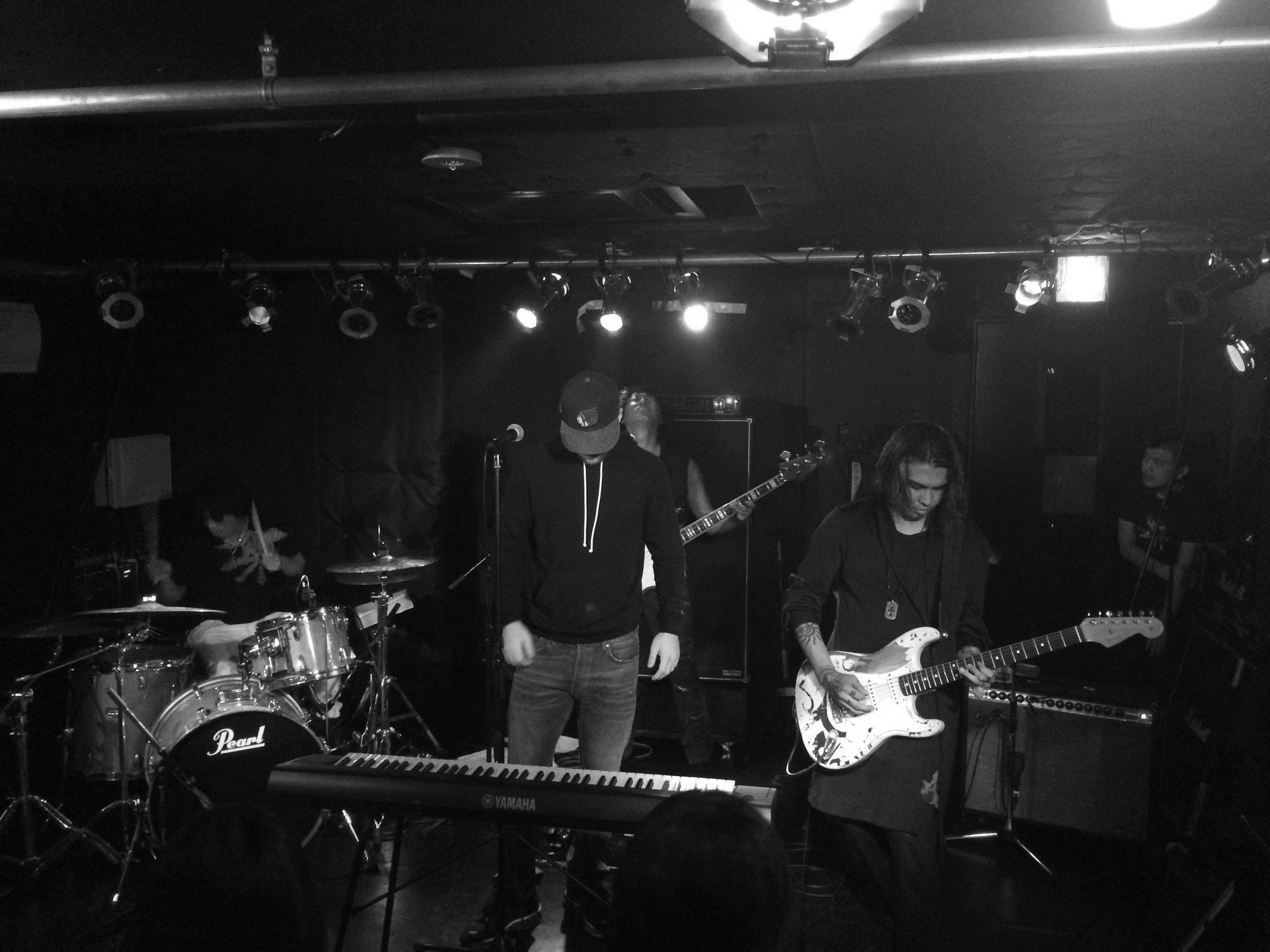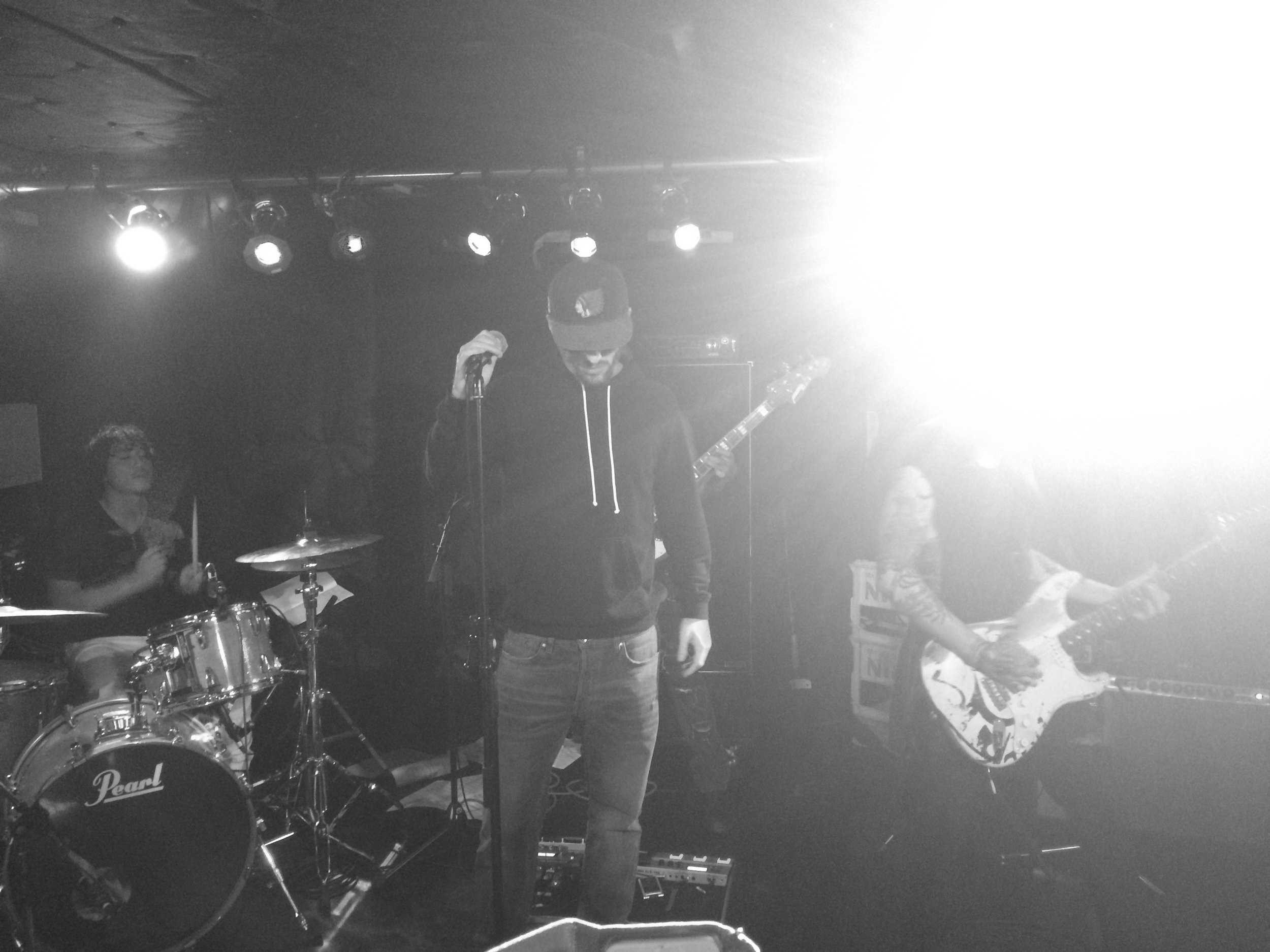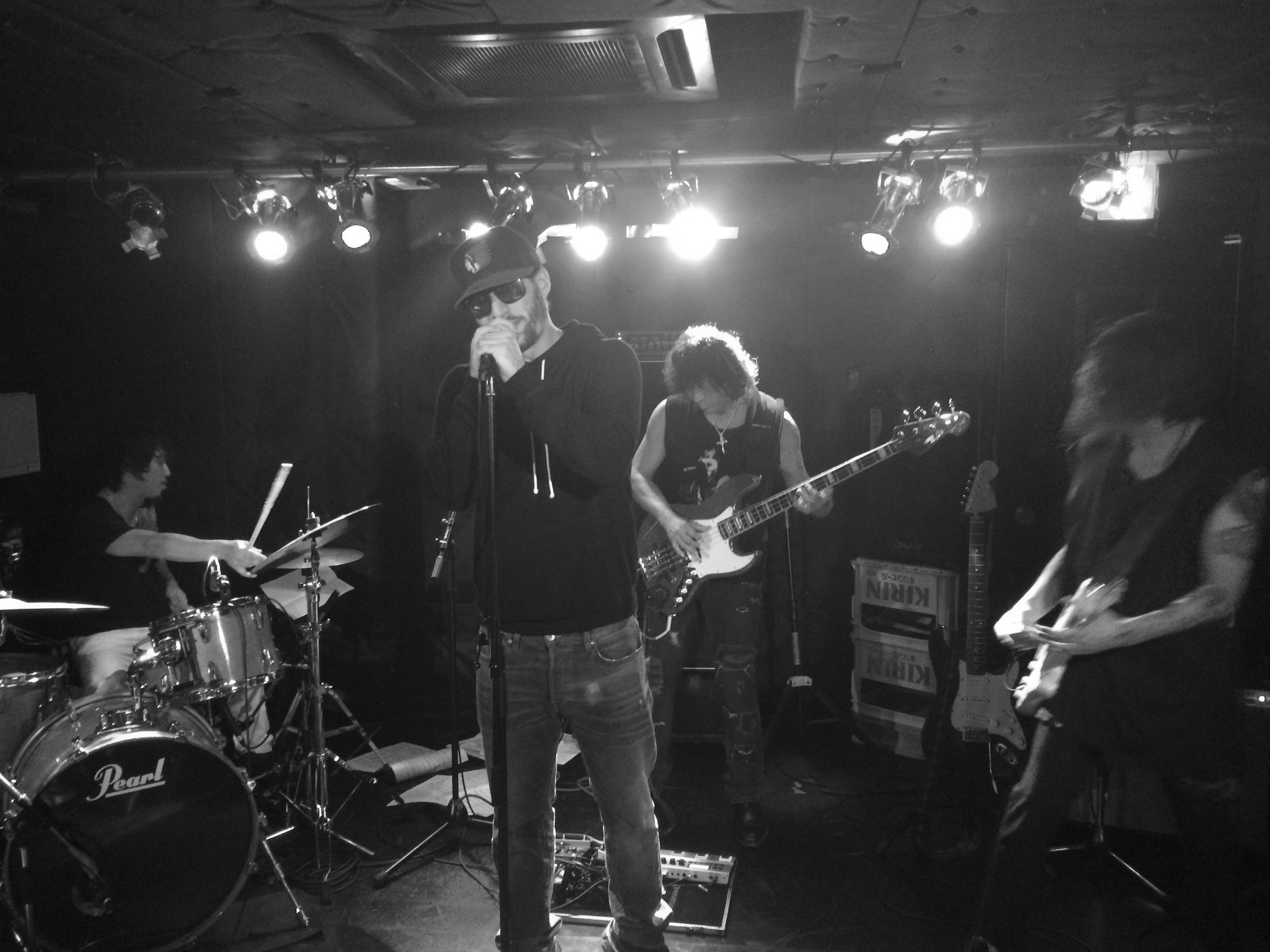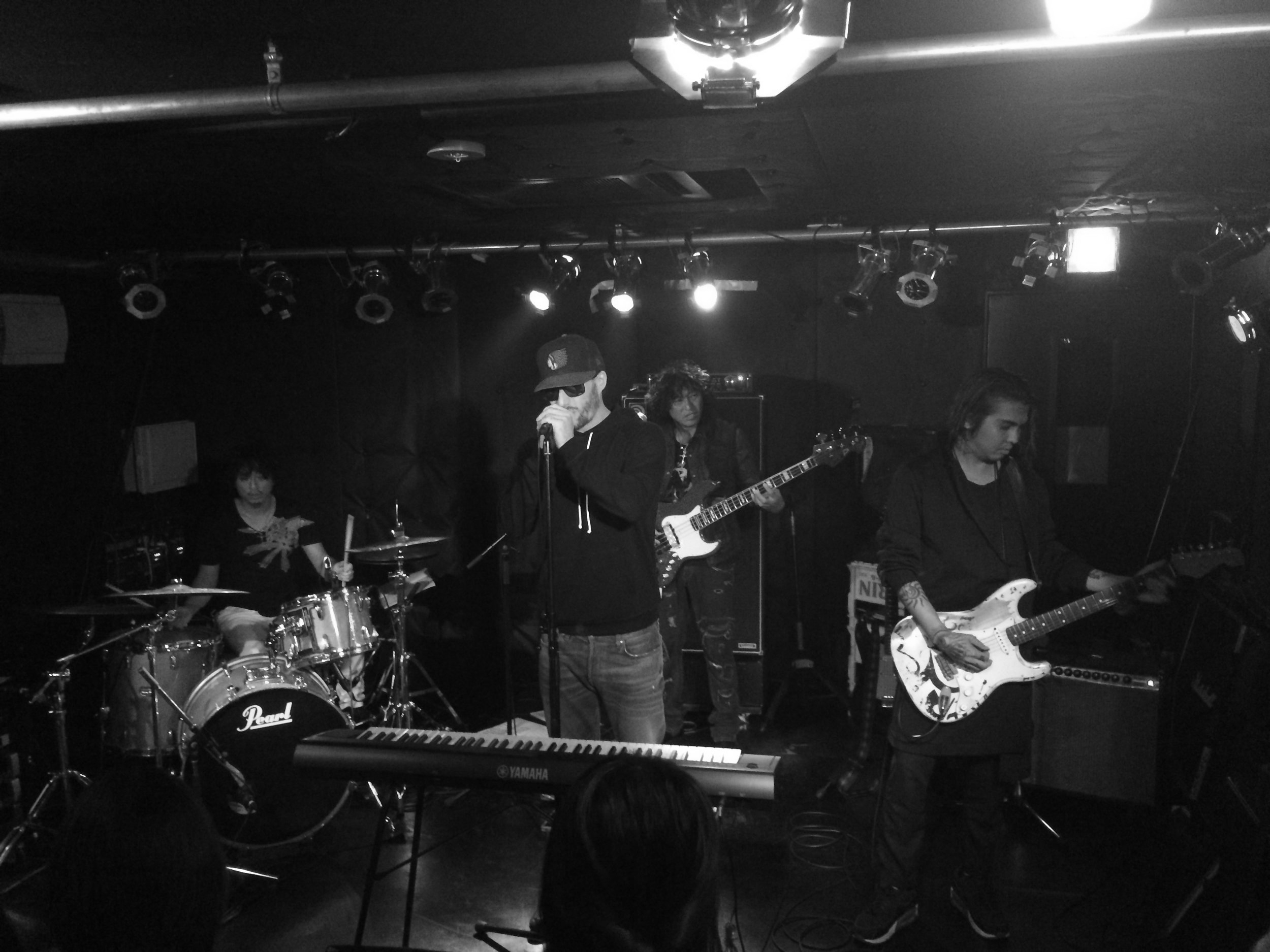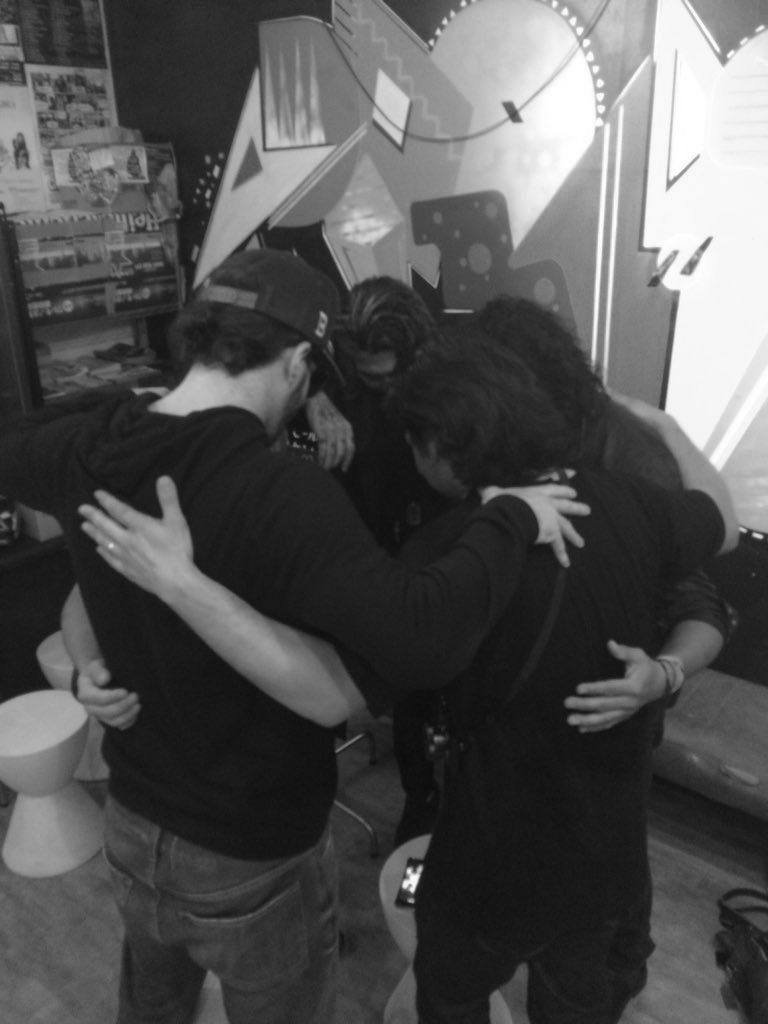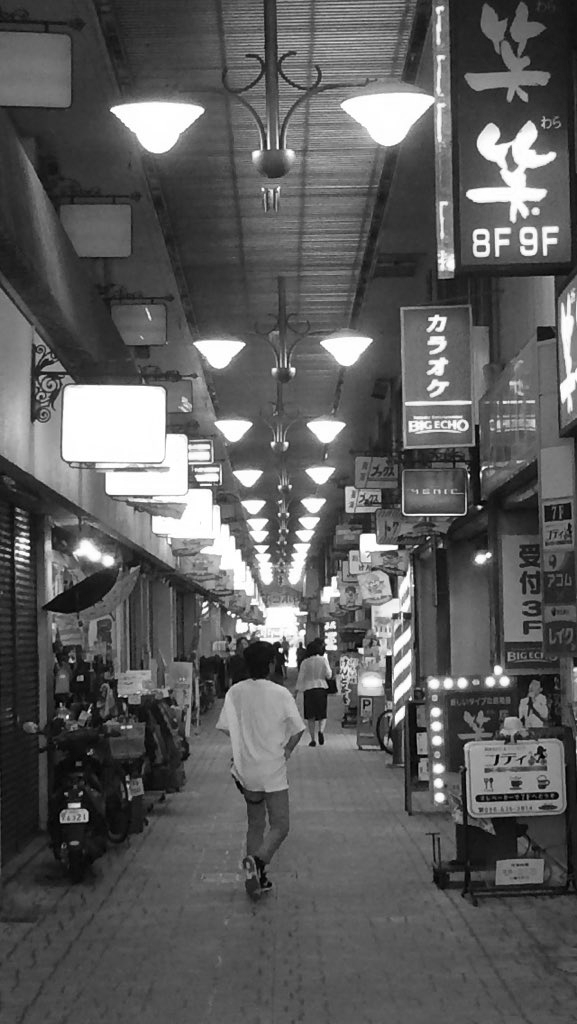via Duran
The birth of music appeared on Earth long before Guido D'Arezzo added time signatures in 1000 AD. From raindrops in damp caves to pterodactyls soaring and screeching out an organic B sharp, all notes have been present long before the dawn of man. This is the philosophical basis for Yoshï frontman David Perry's manifesto: that no song or piece of music is original or unique, that the music should never contain licensed ownership, that all music should be universal without an attachment of intellectual property. All songs created in 2017 are simply recycled and rebuilt version or resources already available. It's this free-spirited mindset that Perry indoctrinates to further the movements of his new band, Yoshï. It makes perfect sense when I see the quartet perform their second show by kickstarting with "Midnight Special", a folk song dating back to 1905. A song that is free to be used by the public.
Made up of Perry (a New Yorker) and three acclaimed and seasoned Japanese musicians (Duran, guitar; Fuyu, drums; Jino, bass), Yoshï blends garage blues with classic rock. The four have only been together for a few months, and while they only have a handful of original pieces, Yoshï is full of grandiose ideas and refreshing visions. Perry wants to play in a Japanese prison, for example. He wants to accept a Grammy and dismiss the award by saying that the music is not his music; it’s the world's music. But first and foremost, he wants Yoshï to bring the blues to Japan.
After quitting a cubicle salary in Manhattan where he worked in e-commerce as well as a stint with Warner Bros. Records, Perry reunited with A&R Yoshi (their manager whom the band may or may not be named after) who coordinated with the three Japanese musicians to form something worthwhile. The trio of musicians are established artists having plenty of experience in the studio as well as on the road. Guitarist Duran, for example, is in the well-known Japanese group Made in Asia.
When I meet the band, it's moments before their performance and we’re in Tokushima, Japan, a city with a quarter million inhabitants. I walk through a maze of signs I don't recognize, past promotions for the city's upcoming lantern festival (the largest in Japan), past quiet restaurants, and into a room where four men are chugging beer and energy drinks as they wait to go on stage. Surrounded by posters past, the quartet relax in the storefront of Crowbar, a local hangout and record store.
In the bar (see also: the small Japanese city as a whole), I am the only other American besides singer Perry, who steps onto the bar’s modest stage behind shades, a plain black hoodie, and a straight billed Blackhawks hat. He is the only one in the group not smoking cigarettes. Perry's reserved appearance is contrasted by his belting voice and his electrified and energized backup band, who are covered in tattoos and tobacco. Duran wears a rolled up suit coat that displays his tattooed arms, which feature Michael Jackson, the Prince logo, the Fender logo, and more. Bassist Jino is sleeveless with plenty of silver chains. Fuyu the drummer follows suit by wearing all black.
After the show, Fuyu tells me they played to a small crowd in Tokyo earlier that week and that their second show had a more significant turnout; this makes sense because although it's not a large venue, the place is packed. The entire front row is made up of scrunched together Japanese women screaming throughout the performance. Seemingly unable to take their hands off of their cameras, the men behind them use their manual dexterity to drink beer and smoke cigarettes. The music that Yoshï showcase throughout the 45 minute set is fast rock, blues, and metal all rolled into one American crossover in a tiny town in Japan. The quartet plays eight songs. They play songs by bands the audience recognizes like Black Sabbath ("War Pigs") and Motörhead ("Ace of Spaces") intertwined with more relaxed original pieces. At one point during the set, they bring out a timid elderly woman with a French horn, who plays for one of their original compositions. Once the song is over, she departs and I can't help but think to myself, did this band just bring out a French horn soloist after a Sabbath song?
As Perry walks off stage at the end of the performance, the band closes with an instrumental rendition of Jimi Hendrix's "Voodoo Chile”, a song that has been covered by Stevie Ray Vaughan, Yngwie Malmsteen, Joe Satriani, Steve Via, and more. It's a loud and receptive evening, full of encore shouts, roars during guitar solos, and photos with the band after the show. Later into the evening, their manager's wife (a Brooklynite) tells me that the she found a promotion for the show online, and that the flyer translated to asking, “Where would you be able to find a more gorgeous band?"
For myself and perhaps for most of the audience at the bar, the appeal of this origin story lies in the perspective of the American frontman performing in a tiny town to a scrunched Japanese crowd of women and tattooed men smoking cigarettes, blasting some rock n roll in English. For Americans when Yoshï inevitably visit the U.S., it'll be quite the opposite: that three Japanese musicians are coming to town and that they play the blues. They play the blues well. Either way, the markets on both sides of the globe are ready and curious.
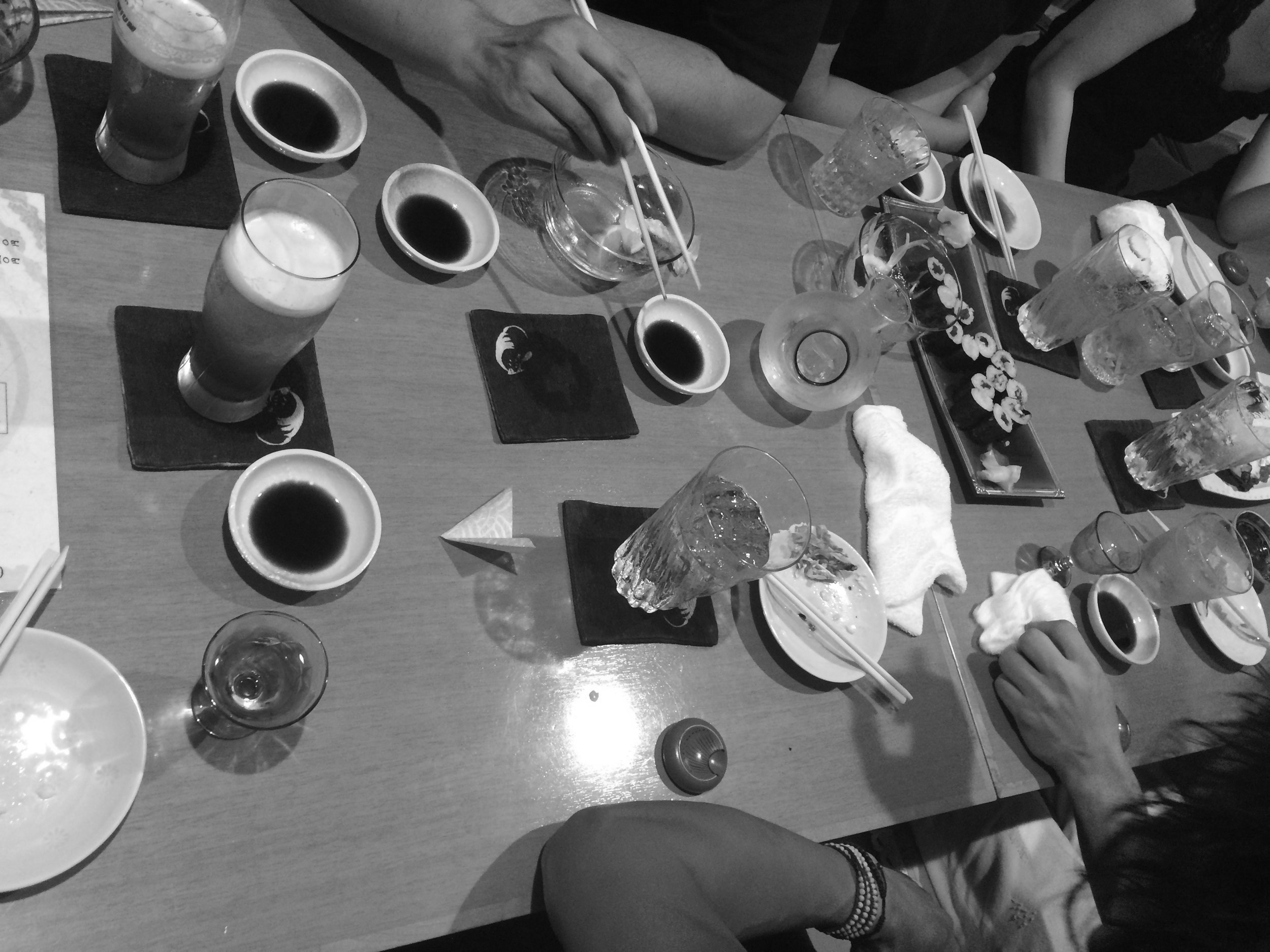

Following the event in Tokushima, the band stumbles down the street for sushi and drinks at a place Yoshi (the manager, not the band) recommends. At dinner, the table is made up of the band members, Yoshi's sister, Yoshi's wife, and Yoshi's friends, one of whom is a metal singer and the other who has a rock venue, his own show, and owns a bar. The man doesn't speak much English, but as we discuss the show and the turnout, he repeats "heavy metal" over and over.
At the very end of the night, after calling it quits at a bar a few blocks from the venue, I walked through the early morning streets of a hushed Tokushima with Perry. In regards to the language barrier, I asked Perry if he knows any Japanese and he says, “No, I kind of like it.” Already a quiet individual with plenty of worldviews and outlooks, it could be that Perry prefers to soak in the world around him with a bit of mystery, or perhaps he’s okay getting by on body language alone, or, most likely, he’s okay not joining in on the conversation. Either way, Perry is content with his new surroundings, already anticipating the next step of recording more as Yoshï.



